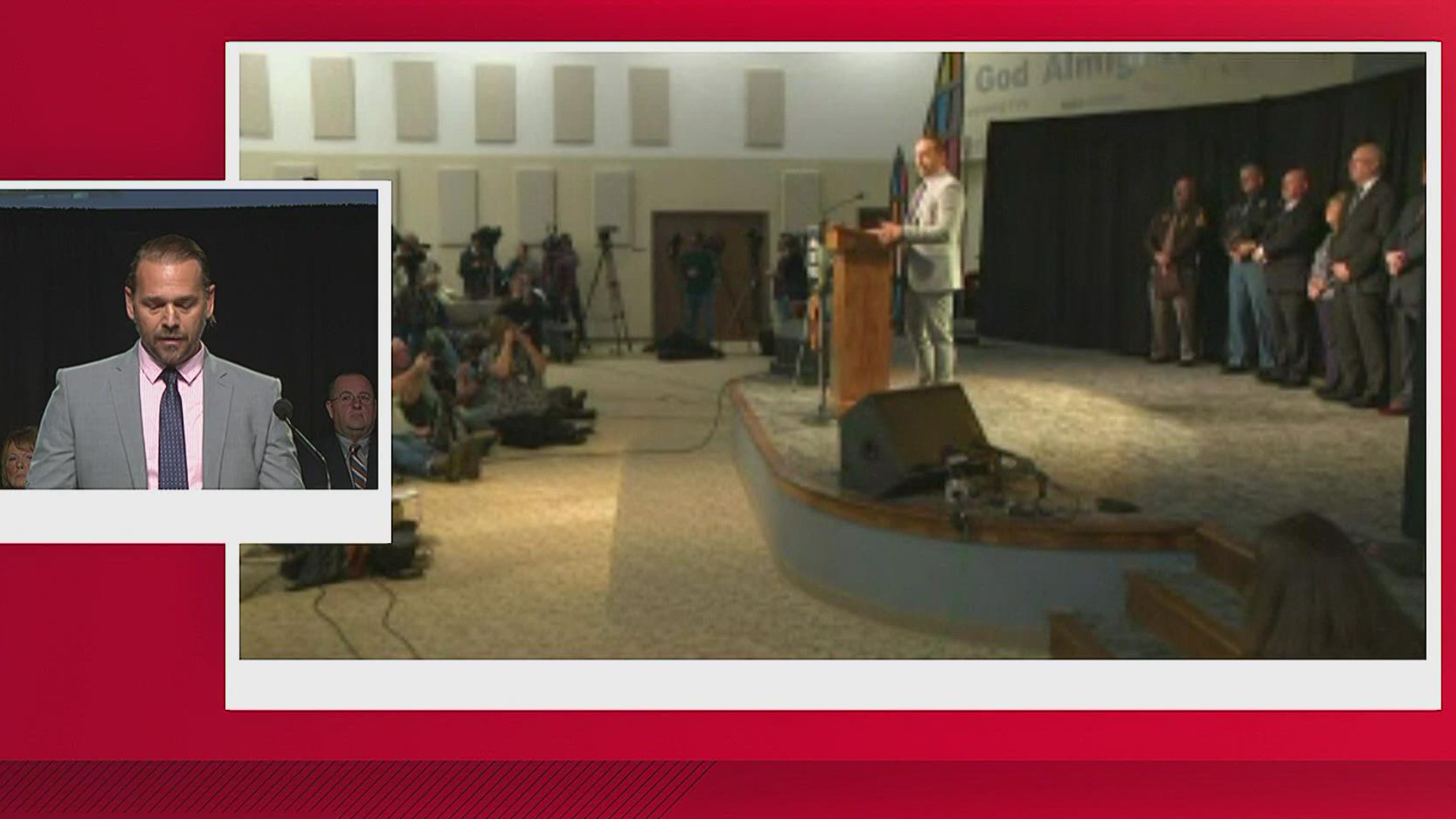DELPHI, Ind. — The arrest of a murder suspect usually comes with plenty of information about the defendant and why police believe the suspect is connected to the alleged crime.
But that is not the case following the highly-publicized arrest and charges filed against Richard Allen.
Carroll County Prosecutor Nick McCleland made a surprise announcement during Monday's press conference detailing the arrest of a man accused of two murders in Delphi: Police and prosecutors are not releasing details about why they believe Allen murdered two girls on the Monon High Bridge in 2017. Instead, the prosecutor asked a judge to keep those details under seal, and the judge signed an order granting the request.
Police say the 50-year-old Delphi man faces two counts of murder for allegedly killing Abby Williams and Libby German. The case made national headlines and rocked a small Indiana town, and many believed Monday's announcement would shed new details on the crime and the man who is now in jail and charged with the murders.
Indiana State Police and the prosecutor quickly dispelled hopes for those new details.
"Today is not the day for that," said ISP Superintendent Doug Carter.
"This investigation is still very much ongoing," added McCleland, speaking to a large crowd of media and Delphi residents who gathered to hear news of the arrest. "We're keeping the tipline open, the tip email open. We encourage everybody to continue to call in tips -- not only about Richard Allen, but also about any other person you may have. For that reason and for the nature of this case, the probable cause [affidavit] and the charging information has been sealed by the court."
A probable cause affidavit explains WHY an individual has been charged with a crime, outlining the defendant’s alleged actions that led to his or her arrest. State law requires that a probable cause affidavit be publicly filed in most criminal cases after a defendant has been charged.
The fact that the prosecutor and law enforcement are keeping the document secret in such a high-profile case is troubling to some legal experts.
"It is surprising," said Novella Nedeff, who spent nearly two decades as a public defender and now teaches law at Indiana University. "I dare say on the state level, I can't think of ever hearing of a probable cause affidavit being held 30 days after an arrest was made."
Nedeff told 13News that releasing probable cause information helps ensure due process for the defendant while also allowing the public to scrutinize the justice system and ask important questions. In this case, both due process and transparency are in jeopardy because the evidence against Allen is being kept secret.
“Not only does the public not get to see important information, but we don’t even know if the case is under seal right now for the defense. He has a right to know what he’s accused of so he can mount a defense and preserve evidence to prove his innocence. You can’t do that if you don’t know what they’re accusing you of.”
13News contacted other judges and prosecutors who also expressed surprise that the charging documents against Allen have not yet been released publicly, three days after the suspect’s initial hearing. Those judges and prosecutors asked not to be identified due to judicial rules that prevent them from commenting on pending cases.
McCleland said a hearing will be held at a later date for a judge to reconsider whether to keep the probable cause affidavit sealed or to publicly release it. But ISP Superintendent Doug Carter said that hearing might not happen for a while.
“Nothing will happen between now and the second or third week of November,” he said Monday morning. “And then the judge will have to decide in the coming weeks and months what and when he decides to unseal those.”
Indiana Code 5-14-3-5.5 requires that “before a court may seal a public record … it must hold a hearing” and notice of the hearing “shall be posted at a place designated for posting notices in the courthouse.” It is not clear whether a hearing with proper public notice was conducted before Allen’s probable cause affidavit was ordered sealed.
For now, the evidence leading to Richard Allen's arrest remains a mystery until we get to see those court documents.

